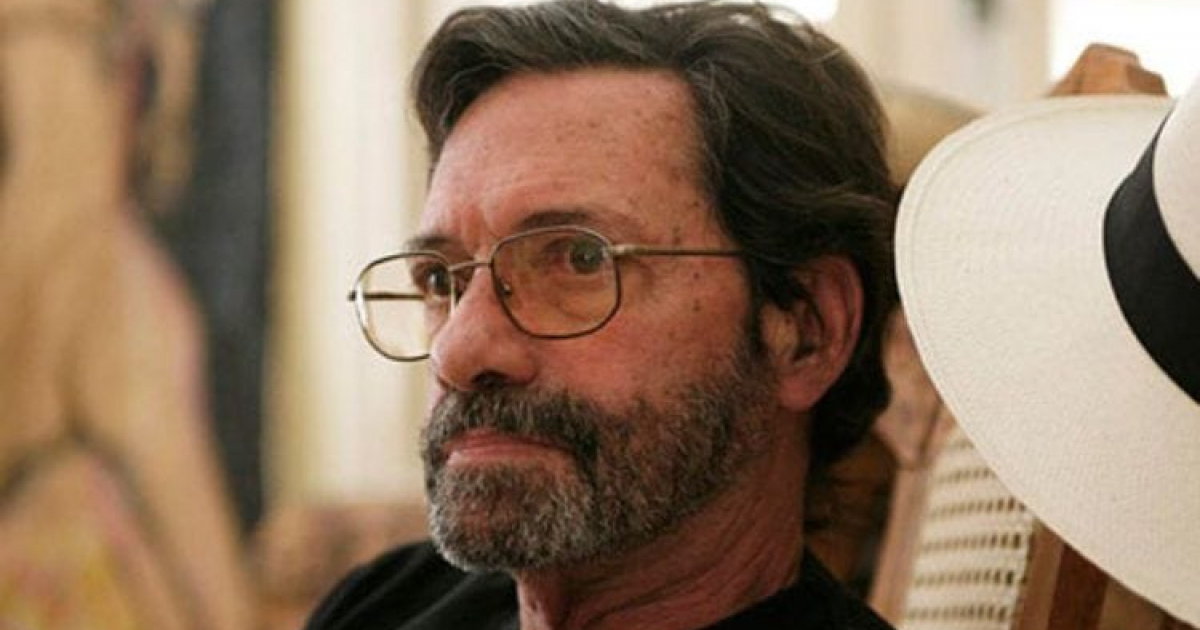
The leading director and screenwriter of Cuban cinema, Juan Carlos Tabio, co-director of the film Strawberry and Chocolate, died at sunrise on Monday, January 18 at the age of 77, according to a note from the portal Cubacine, which did not specify the cause of death.
National Film Award in 2014, Juan Carlos is internationally recognized as one of the most outstanding and award-winning Cuban film directors of recent decades, with such important titles in his filmography as Exchange (1983), Plaff or too scared of life (1988) and The elephant and the bicycle (1994).
Especially important the co-direction he shared with Tomás Gutiérrez Alea in the multi-award-winning Strawberry and chocolate (1993), which was even nominated for Oscars, and Guantanamera (1995).
They also count in their filmography Waiting list (2000), Even though you are gone (2003), The cornucopia (2008) and directed “The bitter sweet of despair”, one of the feature film’s stories Seven days in Havana (2012). The latter, a choral performance in which other important international directors took part, notably the Spanish Julio Medem, the French Laurent Cantet, the Argentinian Pablo Trapero, the Palestinian Elia Suleiman and the Argentinian-French Gaspar Noé.
Tabío’s filmography was widely awarded within and outside of Cuba, Plaff received the special mention of the jury of the International Federation of Film Societés at the XIV Ibero-American Film Festival of Huelva, Spain, in 1988, as well as the Third Choral Prize, FIPRESCI Prize at the X International Festival of New Latin American Cinema.
The humorous comedy, which earned actress Daisy Granados an award in Portugal and another in Paraguay, was also the award for best film at the New York Latin Festival in 1989 and the award for best film at the II Caribbean Film Festival, Fort de France , Martinique, 1990.
He Elephant and bicycle received a FIPRESCI entry at the XVI International Festival of New Latin American Cinema, was nominated for the Goya Award for best foreign film, 1995, in Spain. He also won second prize at the International Film Festival, Damascus, Syria and the audience prize at the Brussels Festival, Belgium, in 1997.
Born in 1943, Juan Carlos Tabío started working at ICAIC in 1961 as a production assistant and later continued as an assistant director.
Between 1963 and 1980 he made more than 30 documentaries, some of them awarded in different competitions. In 1983 he directed his first feature film, Switch, critically acclaimed by the Cuban audience, who won the third choir prize at the VI International Festival of New Latin American Cinema.
Exchange and his second film, Plaff, they stay like two of the most important Cuban film comedies of all time.
Waiting list in 2000 he received the prize from the French Ministry of Culture and was the Cinema-Forum Audience Award at the Cannes Festival.
The cornucopiameanwhile he received the third choir prize at the XXX International Festival of New Latin American Cinema in 2008 and also received the special jury prize at the 49th Cartagena International Film Festival, Colombia, 2008, among others.
Between 1989 and 1990, Tabío was professor of screenwriting and film directing at the San Antonio de los Baños International School of Film and Television. During his long career he also dictated numerous writing, directing and dramaturgy workshops in various countries including Mexico, Costa Rica and Panama.
The UNEAC and other Cuban institutions have echoed the news, with reports of regret at the massive loss to Cuban culture following the death of Tabío, adding to the recent death of film director Enrique Pineda Barnet, happened less than a week ago.
The remains of Juan Carlos Tabío will be cremated and “the completion of the farewell will be timely reported to this director who thought in pictures leaving us as a legacy an important career in the Cuban cinematographic field,” concludes the ICAIC note.
As of writing CiberCuba We offer our condolences to the family of the prominent Cuban film director.